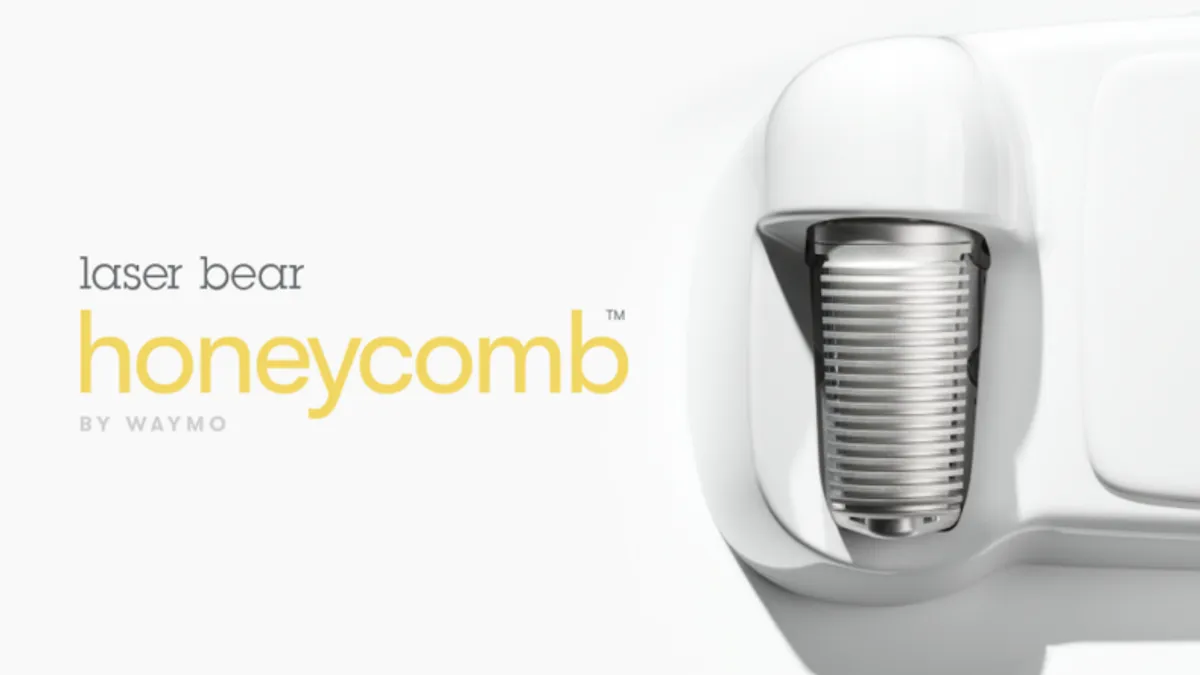Dive Brief:
- Waymo, Alphabet’s self-driving car spinoff, will sell its custom LiDAR sensors to other companies, in part to help expand the market and bring down the cost of the equipment.
- In a Medium post, Waymo’s LiDAR head Simon Verghese said the sensors can be used in fields like "robotics, security, agricultural technology, and more ." Waymo will not be selling to anyone working on autonomous vehicles.
- The sensor is dubbed the "Laser Bear Honeycomb," a short-range perimeter sensor that sits on the bumpers of Waymo cars. The product has a 95-degree vertical field of vision, a 360-degree horizontal field of vision and can see objects directly in front of it.
Dive Insight:
LiDAR sensors — which can quickly measure distances using laser pulses — are key to making autonomous vehicles reliable and cheap enough to reach consumers. Currently, the sensors can run upwards of $70,000, although Waymo has indicated that it has significantly lowered the price. TechCrunch points out that, in a keynote at the 2017 Detroit Auto Show, CEO John Krafcik said Waymo engineers had brought the cost down 90% from the industry standard of $75,000, and advances since then have likely lowered the cost further.
Cheaper sensors, Krafcik said in 2017, are “critical as we look to commercialize self-driving technology.” Getting a bigger market outside of AVs will help incentivize tech firms to work on their own, more efficient, sensors. The product Waymo is selling can work best for slower-speed applications, like use on farming equipment (where it can be used to automate tasks like crop clearing) or security as an enhancement for cameras or intruder detection. Cities like San Francisco have even used LiDAR as a mapping tool.
Competition to create the best sensors has been heating up; the product that Waymo is now selling was at the heart of a lawsuit against Uber alleging theft of trade secrets (the suit was settled last year). In October, two former Apple engineers showed off what they called a "generational leap" in LiDAR tech, and auto companies like Volvo have been investing in sensor companies to help bring the technology along.











